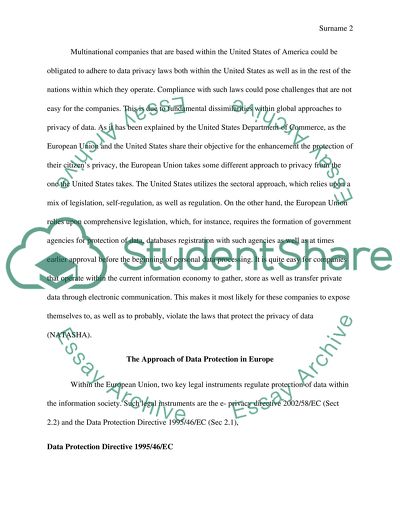Cite this document
(“Europe vs. America: different approaches to privacy Essay”, n.d.)
Europe vs. America: different approaches to privacy Essay. Retrieved from https://studentshare.org/law/1688774-europe-vs-america-different-approaches-to-privacy
Europe vs. America: different approaches to privacy Essay. Retrieved from https://studentshare.org/law/1688774-europe-vs-america-different-approaches-to-privacy
(Europe Vs. America: Different Approaches to Privacy Essay)
Europe Vs. America: Different Approaches to Privacy Essay. https://studentshare.org/law/1688774-europe-vs-america-different-approaches-to-privacy.
Europe Vs. America: Different Approaches to Privacy Essay. https://studentshare.org/law/1688774-europe-vs-america-different-approaches-to-privacy.
“Europe Vs. America: Different Approaches to Privacy Essay”, n.d. https://studentshare.org/law/1688774-europe-vs-america-different-approaches-to-privacy.


